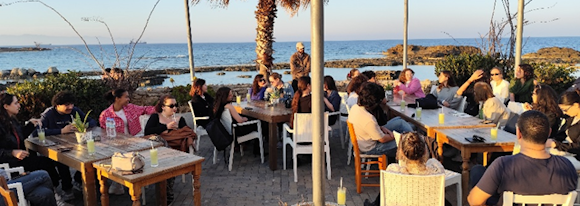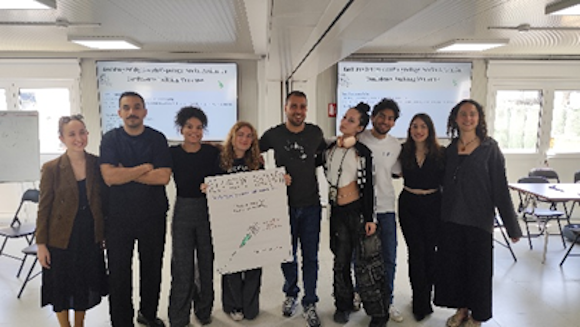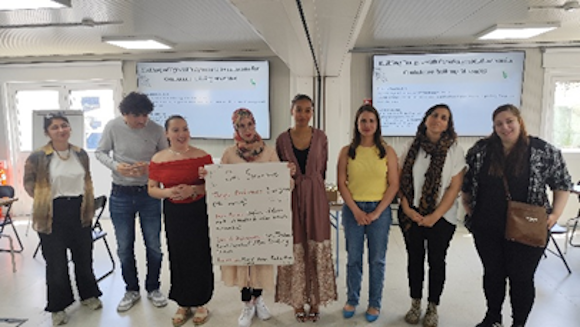Joint Course with the Department of Psychology at the University of Cyprus
The course allowed the students to examine the two conflicts — in Cyprus and between Israelis and Palestinians — from a comparative perspective.
In March 2025, a group of MA students from all over the world from the twin programs Conflict Resolution and Mediation (English taught and Hebrew taught) took part in a joint course with the department of Psychology at the University of Cyprus. The course allowed the students to examine the two conflicts — in Cyprus and between Israelis and Palestinians — from a comparative perspective. Drawing on theories from the fields of conflict resolution and social psychology, the course incorporated direct, personal engagement with the communities, issues, and contested narratives in Cyprus. Alongside academic talks by professors and PhD students from Tel Aviv University, the University of Cyprus, and Eastern Mediterranean University, the students took part in two intense workshops on interactive problem-solving and negotiations. Furthermore, they experienced the conflict first-hand by walking and hearing about the divide in Nicosia and visiting Varosha – a ghost-town whose Greek-Cypriot inhabitants fled during the war in 1974.


Finally, the students met representatives of Cypriot civil society organizations and consequently created joint projects for conciliatory social actions.




 The course involved a preparatory meeting at Tel Aviv University and then four days spent together at the Ledra Palace serving the UN peacekeeping force in Cyprus (UNFICYP), in the Nicosia buffer zone, Cyprus.
The course involved a preparatory meeting at Tel Aviv University and then four days spent together at the Ledra Palace serving the UN peacekeeping force in Cyprus (UNFICYP), in the Nicosia buffer zone, Cyprus.
The course was fully sponsored by a grant from the Israeli Ministry of Regional Cooperation and by the Lowy International School at Tel Aviv University.
"Joining the Cyprus course has been a highly enriching, eye-opening experience for me. In the buffer zone of Nicosia, I had the opportunity to meet people from all walks of life and listen to parts of their stories firsthand. The workshop gave me the chance to step back and gain a broader perspective on the region's complex history, and it emphasized the importance of actively working to reduce prejudice."
Participant Shahdan Anabousi
"Taking part in the workshop in Cyprus was an incredibly enriching experience. It allowed me to connect theory and practice in a meaningful way, while engaging with people from diverse backgrounds. It was a truly unique opportunity—one I would never have been able to live outside the context of this master’s program."
Participant Hannah Kimhi





